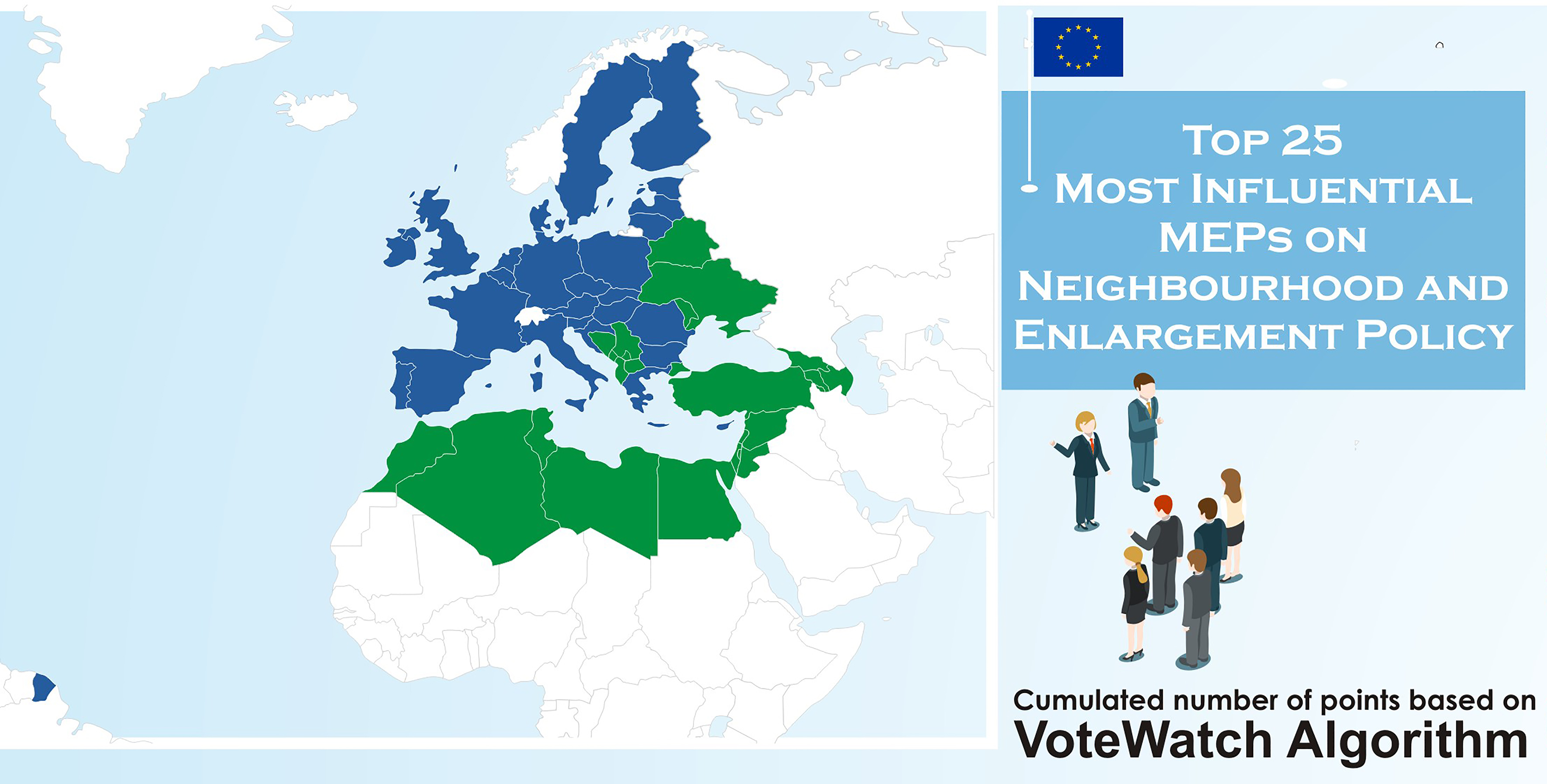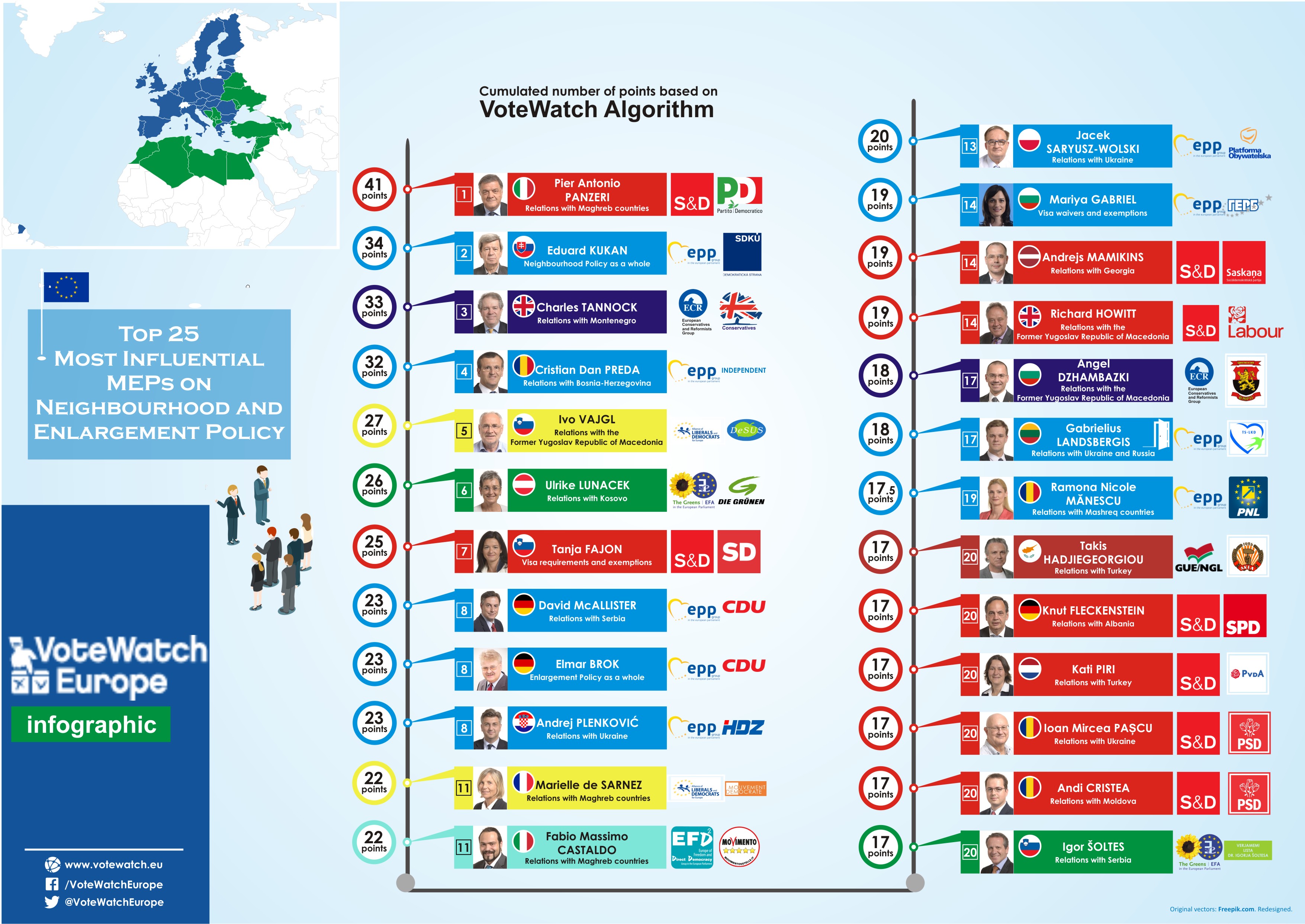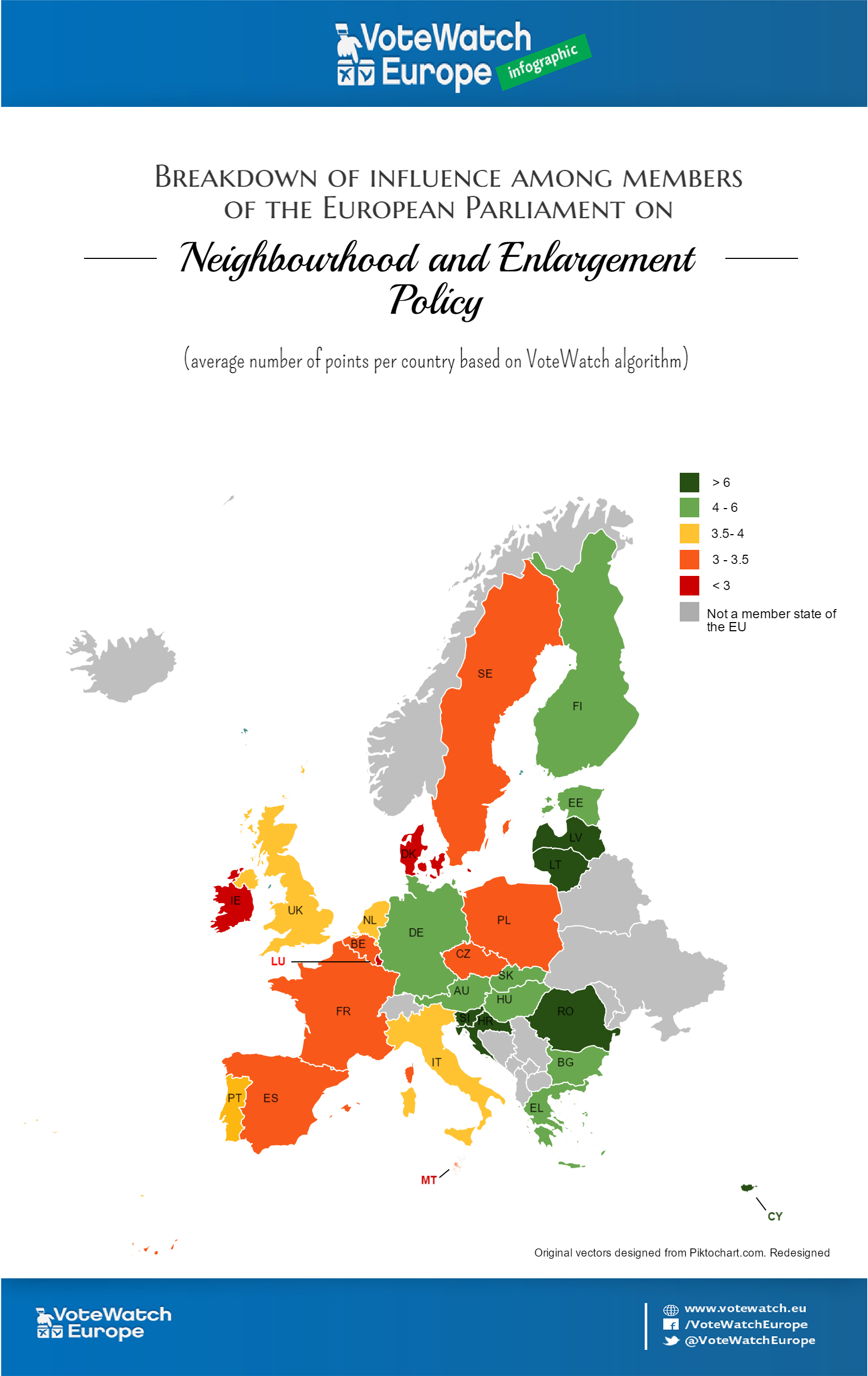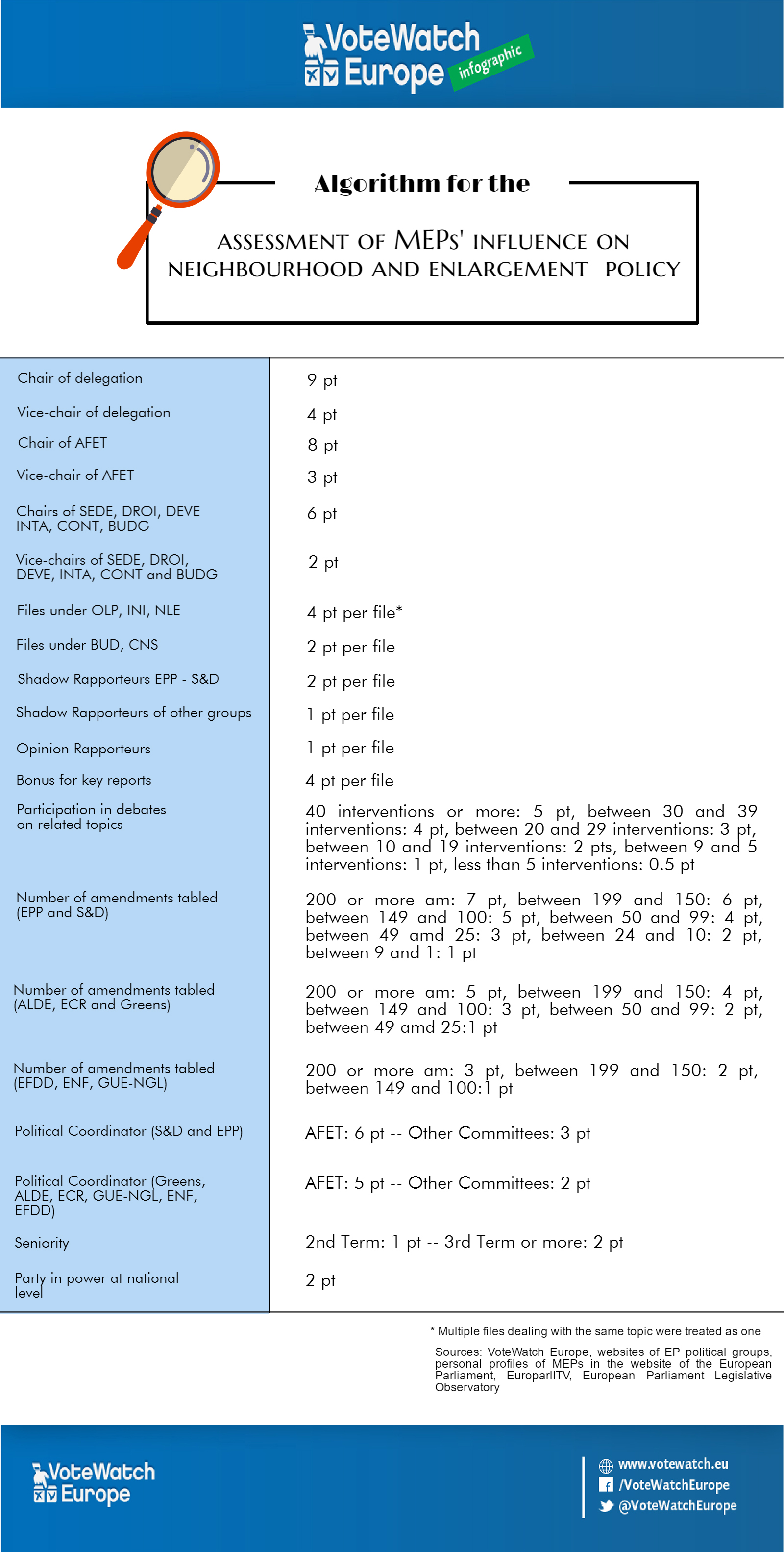Blog
 Why are why doing this assessment?
Why are why doing this assessment?
VoteWatch Europe has recently conducted an overall assessment on the most influential MEPs over the current parliamentary term. This type of information is fundamental to the public, who needs to be aware of the personalities that shape policies affecting over 500 million EU citizens. The institutions as a whole, and in this case the EU institutions, take responsibility for the decisions made and their implementation, but in order to strengthen the democratic processes, the citizens also need to know which politicians within the institutions are playing a bigger role in shaping these decisions. This is especially the case of EU’s institutions, whose complexity have led many citizens to feel disengaged from this political system, in the relative absence of (locally-known) human faces that they can easily associate decisions with.
Equally important, many MEPs have pointed out that they find it very difficult to communicate to their own constituents the importance of the work that they are doing in Brussels and Strasbourg. For this reason, MEPs argue that their contributions are not fully recognised by the local/national public arenas, hence their own leverage in the debates “at home” is sometimes disproportionally small compared to the local/national politicians’ one. This process affects the European construction as a whole. Our initiative also aims at providing the public with a tool to get to know better the work of the MEPs, the areas they are active on and the level of influence they hold (other reports done by VoteWatch also show the actual views of the MEPs on all subjects).
Our broader study shows the cumulated influence of the MEPs across the areas. However, as some observers have pointed out, one MEP may not stand out as being very influent overall, but still hold a substantial leverage in a specific area that he/she is an expert on, or even be the most influential on that topic. For this reason, we thought useful to exemplify who are the MEPs that shape the EU’s policy on a specific topic. Given the recent multiplication of events in EU’s neighbourhood, it seemed natural that this policy would deserve a closer look into. Although no further enlargement of the EU is set to take place before 2019, the increased instability in the Middle East and North Africa as well as in the post-Soviet area constitutes a stern test for the EU’s strategy towards neighbouring countries.
As we have observed while conducting an overall influence assessment of MEPs, different politicians are variably influential on different policy issues and this is particularly true in the case of neighbourhood and enlargement policy. An MEP can be very influential on the EU’s policies towards Ukraine and still he/she might hold no influence whatsoever on the EU’s policies towards Morocco and the other Maghreb countries. Therefore, the different specialisations and interests of MEPs should be taken into account when reading our report, in order to spot which MEPs hold the biggest leverage on a specific issue.
Importantly, our assessment does not measure in which way an MEP influences the EU’s strategy towards a neighbouring country, but just that he/she exerts a certain level of influence in this area. In fact, an MEP might be interested in strengthening the partnership between the EU and a third country, but also, on the contrary, he/she might aim at weakening the relationship between them. For example, although Greeks and Cypriot MEPs are very active on the policies towards Turkey, they are on average more cautious about deepening the relationship between Turkey and the EU than the rest of the assembly.
–
How was the algorithm built?
Before starting the assessment, we first defined the boundaries of EU neighbourhood and enlargement policy. We decided to collect all the reports regarding countries neighbouring the EU, with the exclusion of Russia, the members of the EEA and Switzerland. We also excluded the special cases of Libya and Syria from the assessment, as the outburst of internal conflicts in these countries has drastically changed the EU’s approach towards them.
In order to assess which MEPs are the most influential ones in neighbourhood and enlargement policy, we amended the algorithm employed for the overall assessment of the influence of MEPs. The amendments took into accounts the specific aspects of this policy field. For example, this time we assigned a higher score to the chairs and vice-chairs of EP delegations to neighbouring countries than to the MEPs holding important positions within the Committees of the EP (AFET, DEVE, INTA, BUDG, etc…). The reasoning has been that since committees have a broader mandate than the delegations, an MEP holding a key position in one of the relevant committees is not necessarily influential in this specific field.
In addition, the scores attributed to the rapporteurs are slightly different from the ones adopted for the overall influence assessment: as the European Parliament has usually limited powers in this policy area (it can just reject the agreements signed with third countries, but it cannot amend them), the own initiative reports are politically more important than in other fields. In fact, they are the only instrument through which the MEPs can spell out their positions on several aspects of the relationship between the European Union and the neighbouring countries. Instead, the reports under the Ordinary Legislative Procedure, despite their higher legal value, often concern very specific or technical aspects of neighbourhood policy, which means that their influence on the overall shape of neighbourhood policy is rather limited. For this reason, we assigned the same score to the rapporteurs on these different types of dossiers, whereas, in the general assessment, we gave a higher score to the rapporteurs on OLP files.
In addition to the rapporteurships and the key positions held in the Parliament, we included a third dimension, measuring how active the MEPs are in this policy area. For this reason, we counted the number of times an MEP intervened in the plenary during the debates related to neighbourhood and enlargement policy. Even though a high level of participation in the debates does not necessarily imply a high level of participation in legislative activities as such, this is a useful an indicator of the interest and engagement of an MEP in this policy area. However, participation in debates carries a smaller weight than more substantive indicators, such as rapporteurship and relevant official assignments.
Additionally, we counted the number of times an MEP tabled amendments on files related to neighbourhood and enlargement policy. However, many amendments are normally rejected by the other members of the Committee. In fact, the rate of success of the amendments tabled by MEPs depends on the strength of their political groups. VoteWatch Europe employed the rate of success of amendments tabled by different political groups in the plenary as a proxy for estimating the success rate of the amendments tabled by the Members of the same groups at the committee level, given that the proportions between groups are roughly similar at plenary and committee level. For example, an amendment tabled by an MEP from the EPP is much more likely to pass than one from the EFDD, thus it carries more weight.
Finally, some MEPs were assigned extra points based on insights we received from among experts and political sources, which have indicated that the reports shaping the broader neighbourhood and enlargement strategy as a whole hold substantial influence. Consequently, the MEPs that drafted them do hold additional leverage. These reports have not been necessarily drafted during this legislature, but their influence is lasting as they shaped the broader framework in which the individual initiatives are now being framed. These MEPs are: Pier Antonio Panzeri, Eduard Kukan, Elmar Brok, Jacek Saryusz Wolski and Charles Tannock.
–
Who are the most influential MEPs on neighbourhood and enlargement policy?
Although most of the MEPs are specialised in the relations between the European Union and specific countries, there are certain MEPs who are also influential on neighbourhood and enlargement policy as a whole. Pier Antonio Panzeri is one of these MEPs.
The member of the Italian Democratic Party (S&D) tops our list thanks to his important role on the EU policies towards North Africa. In fact, he is the Chair of the EP delegation to Maghreb countries and he drafted the reports on the Framework Agreements between the EU and countries such as Algeria and Tunisia. Additionally, he co-authored (together with Saryusz-Wolski) a report on the position of the European Parliament on the status of the European Neighbourhood Policy. He is also the coordinator of the S&D in the Sub-Committee on Human Rights.
In second place, we find a Slovakian member of EPP, Eduard Kukan. Not only does he chair the EP delegation to Serbia, but he also drafted a report on the review of the European Neighbourhood Policy, as well as a report on the European Neighbourhood Instrument 2014-2020.
A British Conservative, Charles Tannock (ECR), occupies the third position in our assessment. He is specialised in the EU’s relations with Montenegro, as he drafted the annual progress reports on this candidate country. Tannock is also the political coordinator of ECR in the Committee on Foreign Affairs and he can be considered as one of the “fathers” of EU Neighbourhood Policy, as Tannock has being drafting reports on this political initiative since 2004.
A former political science professor, now an independent Romanian MEP sitting within the ranks of EPP, occupies the fourth place in our list. Cristian Dan Preda is specialized in the EU’s relations with Bosnia Herzegovina, although in the past he also focused on Iceland (when this was still a candidate country). He is also the vice-chair of the Sub-Committee on Human Rights, as well as the coordinator of EPP in the Committee on Foreign Affairs.
On the fifth place, we find a Slovenian MEP from the ALDE group, Ivo Vajgl. He is particularly active on the reports regarding the Former Yugoslav Republic of Macedonia as he drafted the annual progress reports on this country.
An Austrian Green, Ulrike Lunacek, occupies the sixth place. The Vice-President of the European Parliament is also the Vice-Chair of the EP delegation to Bosnia Herzegovina and Kosovo. She is specialized in EU-Kosovo relations and she drafted several reports about the situation in Kosovo as well as the report on the EU/Kosovo Association Agreement.
Another Slovenian, this time a Socialist, is the seventh most influential MEP in this policy area. Tanja Fajon (S&D) is mostly focused on visa and mobility issues and she was rapporteur on reports concerning visa exceptions or requirements for Moldova and Kosovo.
Our top 10 list is closed by three MEPs tied at the 8th place. A German long-serving MEP, Elmar Brok (EPP), was assigned extra points for his key role in framing and defining the EU enlargement policy for more than a decade. He is currently the Chair of the Committee on Foreign Affairs.
Another German MEP, David McAllister, who is a member of the same party as Brok’s (Christian Democratic Union), drafted the progress reports on Serbia and he was shadow rapporteur for the EPP on files concerning the EU’s relations with Kosovo and Azerbaijan.
Then, still at the 8th place, we find a Croatian member of EPP. Andrej Plenkovic is the chair of the EP delegation to Ukraine, as well as the Vice-Chair of the Committee on Foreign Affairs.
A larger list on the top 25 most influential MEP on neighbourhood and enlargement policy is available below:
Which are the trends by countries?
If we look at the influence by country, the largest Members States are more influential than the smallest ones on neighbourhood policy. This stems from the fact that they have more MEPs and, consequently, these big national groups draft more reports and hold more key positions than the smaller national groups.
Germany is the most influential Member State on neighbourhood and enlargement policy, followed by Italy, whose MEPs are particularly focused on policies towards Maghreb countries. UK and France are also quite influential, whereas Romanian MEPs occupy the 5th place of our ranking, surpassing the scores of larger Member States, such as Spain and Poland.
However, perhaps of more accurate measurement of the interest in a particular topic by country is the ‘average per MEP score’. When look at by average score, the Slovenian MEPs are at the top: their average score of influence on neighbourhood and enlargement is more than double than the ones of most national delegations in the EP. Our list shows that the Balkan MEPs from Slovenia and Croatia are the most influential when taken individually. This is not completely surprising, given that most of the candidate countries to the EU were previously part of the republic of Yugoslavia, which also included Slovenia and Croatia.
Similarly, the small Baltic countries are punching far above their weight when it comes to neighbourhood policy. As they are former member of the Soviet Union, they are particularly influential on the relations between the EU and the other post-Soviet countries, such as Ukraine and Georgia.
Likewise, the average scores of MEPs from the two South-Eastern post-communist countries, Bulgaria and Romania, are among the highest. Finally, Cypriot and Greek MEPs are very influential on the EU-relations with Turkey. In particular, the very high scores of Cypriot MEPs stem from their intense activity regarding the EU relations with Turkey, whose army occupies the Northern part of the Mediterranean island.
On the other hand, the least influential on this topic are the Danish MEPs, followed by the Luxembourgish and Irish ones. Overall, our map shows that Northern and Western European MEPs (from Spain, Portugal, the UK, Ireland, France, the Benelux, Sweden, Denmark) seem to exert less influence than the MEPs from other countries, when taken individually.
Our map shows that, the closer a country is to the Eastern border of the European Union, the more likely its MEPs are highly influential on neighbourhood and enlargement policy.
A special note is needed in the case of Poland: the overall and average score of influence per MEP for Poland are low because, out of Poland’s 50 MEPs, most of the Polish representatives are active on other areas, while on neighbourhood and enlargement there are only few MEPs continuously active, albeit very influential, MEPs, such as the prominent Saryusz-Wolski.
For more information or suggestions contact us at [email protected].
Read the overall assessment on the most influential MEPs in the European Parliament.
Also read the separate assessments by country (10 largest member states):
Top 10 most influential MEPs from Germany
Top 10 most influential MEPs from France
Top 10 most influential MEPs from the United Kingdom
Top 10 most influential MEPs from Italy
Top 10 most influential MEPs from Spain
Top 10 most influential MEPs from Poland
Top 10 most influential MEPs from Romania
Top 5 most influential MEPs from the Netherlands
Top 5 most influential MEPs from Belgium
Top 5 most influential MEPs from Greece
ANNEX
Source: Votewatch Blog – Doru Frantescu’s Posts



Be the first to post a comment.